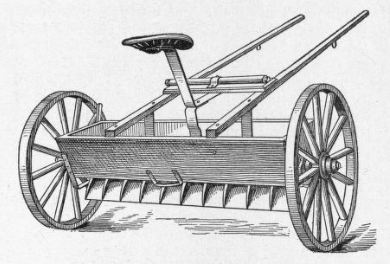110. The Use Of Lime
Description
This section is from the book "Vegetable Gardening", by Ralph L. Watts. Also available from Amazon: Vegetable Gardening.
110. The Use Of Lime
The necessity of lime has been indicated in previous paragraphs. Malnutrition disease may become serious when lime is not used or when soils become acid. In vegetable gardening it is important to keep soils slightly alkaline and this is best accomplished by the rational use of lime. Va. Truck Expt. Sta. Bul. 4, p. 80: "Experiments on Norfolk soils show that liming is very beneficial to all crops except peas, beans and tomatoes. On cabbage lime was added in the spring of 1909, just before planting, and the yield was greatly increased thereby. The succeeding year the experiment was extended to include other crops, and the yield of all crops except peas and beans was markedly increased".
Lime not only neutralizes soil acidity, thus providing favorable conditions for friendly micro-organisms, but it also improves the physical character of soils, promotes decomposition, makes plant food available and enters into the composition of plants. It is also the best known preventive for club root of cabbage and allied crops.
Spring applications of lime gave better results at Norfolk than fall treatment. Lime should never be applied with manure, because it releases the ammonia. When both manure and lime are to be applied to the same soil it is best to plow under the manure, then spread the lime and mix thoroughly with the soil by harrowing.
The acid soils at Norfolk require from 3,500 to 6,300 pounds of lime to the acre to become alkaline. A ton of lime on many soils would be sufficient for the best results.

Fig. 14. Lime Spreader.
111. Related Questions
When a grower learns that it is possible to increase profits materially by the use of fertilizers there is danger of his depending too much upon special plant foods and not enough upon other closely related questions, such as tillage, soil moisture and the supply of humus. It should be borne in mind that no amount of fertilizer will make up for poor tillage, insufficient soil moisture and a small percentage of vegetable matter. More than this, the fertilizers applied will not be of full value unless all other conditions are satisfactory. It is impossible to incorporate fertilizer thoroughly in a poorly prepared soil. If the moisture content is insufficient the fertilizer cannot decompose or enter into solution to become available to the growing plants. Again, soils lacking in organic matter cannot continue to produce large crops even with the lavish use of fertilizers. Harmony of all conditions must exist before it is possible to harvest maximum crops of high quality.
Continue to:
- prev: 109. Dangers Of Excessive Applications Of Commercial Fertilizers
- Table of Contents
- next: 112. Methods Of Commercial Fertilizer Application
Tags
plants, crops, gardening, cultivated, harvesting, food ,greenhouses, fertiliser, vegitables
